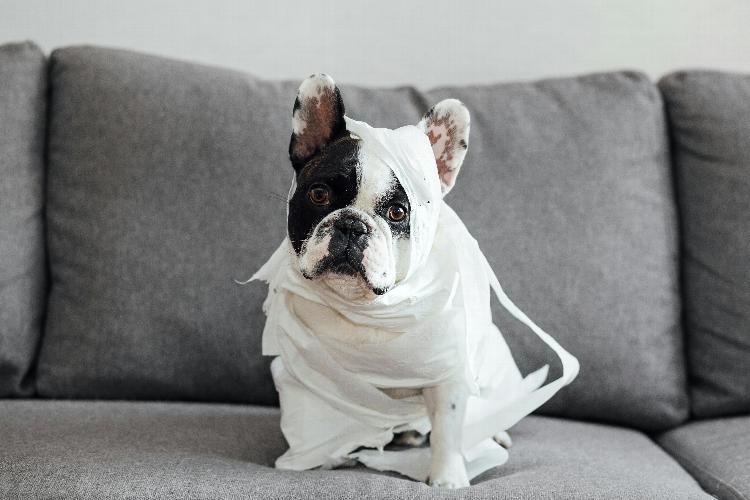Potty Training Your Puppy - A Comprehensive Guide
Training your puppy to go potty outside is one of the most fundamental aspects of dog ownership, and getting it right from the start can make a huge difference in your puppy's development and your peace of mind. In South East London, where dog training is both an art and a science, mastering this skill can set the stage for a well-behaved and happy companion.
1. Understanding Your Puppy's Needs
Before diving into the specifics of potty training, it's important to understand that puppies have small bladders and limited control over their bodily functions. Typically, a puppy can hold it for about one hour per month of age. For instance, a three-month-old puppy might need to go out every three hours. Additionally, feeding and drinking patterns can influence when your puppy needs to go outside.
2. Setting Up a Routine
Consistency is key in potty training. Establish a routine that aligns with your puppy's needs. Take your puppy outside first thing in the morning, after meals, and before bedtime. Regular trips outside, combined with frequent praise, can help your puppy learn to associate going outside with positive outcomes.
In South East London, many local dog trainers recommend setting up a strict schedule for bathroom breaks, especially in the early stages. Keeping a log of your puppy's potty times can help you identify patterns and predict when they'll need to go out next.
3. Choosing the Right Spot
Pick a designated spot in your garden or local park where you want your puppy to go potty. The smell of their previous deposits will help reinforce this area as the place to relieve themselves. Ensure this spot is always accessible and clear of distractions that might divert your puppy's attention.
4. Positive Reinforcement
When your puppy potties outside in the right place, reward them immediately with praise and a small treat. This positive reinforcement helps your puppy understand that going outside is a desirable behaviour. Be enthusiastic and consistent with your rewards to strengthen the connection between the action and the reward.
5. Supervision and Confinement
When indoors, supervise your puppy closely to prevent accidents. If you're unable to keep an eye on them, consider using a crate or a small, puppy-proofed room. Puppies instinctively avoid soiling their sleeping area, so a properly sized crate can help teach bladder control. Ensure the crate is just big enough for your puppy to stand, turn around, and lie down comfortably.
South East London dog training experts often suggest using crates as a tool for effective potty training. It helps to prevent accidents when you can't provide direct supervision and encourages your puppy to develop good habits.
6. Handling Accidents
Accidents are a normal part of potty training. When they occur, it's crucial to handle them properly. Avoid scolding or punishing your puppy, as this can create fear and anxiety. Instead, clean the area thoroughly with an enzymatic cleaner to eliminate any lingering odours that might attract your puppy to the same spot. Remember, accidents are a learning opportunity, not a failure.
7. Be Patient and Persistent
Potty training takes time and patience. Puppies are learning everything for the first time, so it's important to remain calm and consistent throughout the process. Celebrate the small victories and stay positive. Your patience and persistence will pay off in the long run.
In South East London, where many dog owners face unique urban challenges, working with a local trainer can provide additional support and tailored advice. Professional trainers can offer insights into overcoming specific issues related to potty training in an urban environment, such as managing the distractions and stimuli that are common in city life.
8. Seeking Professional Help
If you find that potty training is taking longer than expected or if you're struggling with persistent issues, don't hesitate to seek professional help. Many South East London dog trainers offer specialised sessions focusing on potty training, which can be beneficial for both you and your puppy.
Professional trainers can provide personalised strategies and techniques that take into account your puppy's behaviour and your living situation. They can also offer ongoing support and troubleshooting to ensure that your training efforts are successful.
Conclusion
Potty training your puppy is an essential part of their early development, and with the right approach, it can be a smooth and rewarding process. By setting up a consistent routine, using positive reinforcement, and providing appropriate supervision and confinement, you can help your puppy learn to potty outside reliably.
In South East London, where the urban environment can present unique challenges, local dog training experts can offer valuable guidance and support to help you navigate the potty training journey. With patience and perseverance, you'll have a well-trained puppy who understands where and when it's appropriate to go potty, setting the stage for a harmonious and happy life together.
If you're ready to improve your dog's obedience, contact us at 01322842483 or Support@janbdogtraining.com to schedule a consultation. Let's work together to build a well-behaved, happy, and confident dog!
